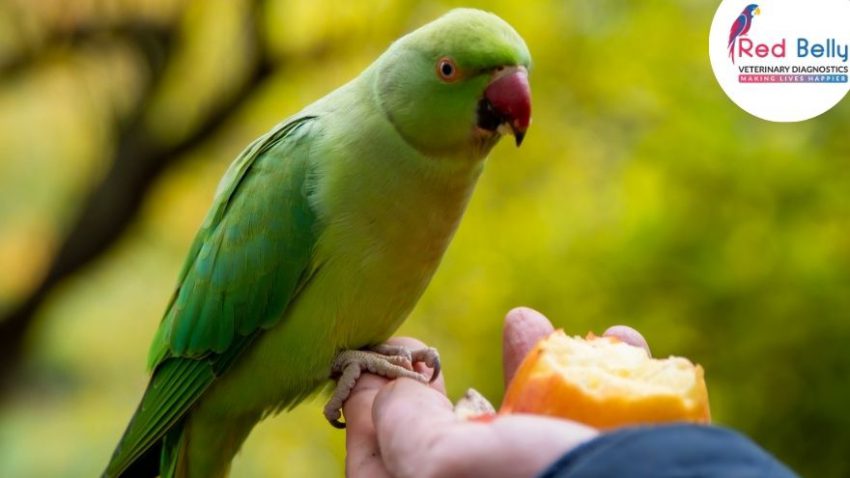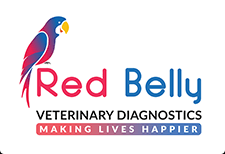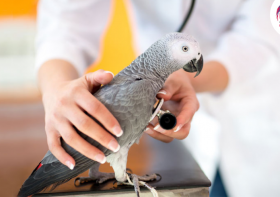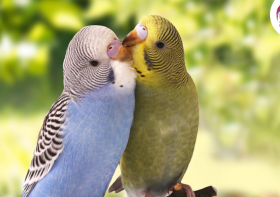6 Ways To Improve Your Pet Bird’s Health

Pet birds can be a delightful addition to your household. The soothing call of a bird can help us relax after a long tiring day. They are smarter than you think and can be the best companion for your life. However, keeping a pet bird as a part of your family can be a little challenging. You need to ensure that they have the right environment, a diet, healthy exercise, enrichment, and interaction. Whether it’s a budgie, a parrot, canary, or finch, they all need the same basic care. Regular bird care can ensure your pet bird has a healthy life. There are certain important things you need to remember when taking care of your feathered friends. This blog lists down 6 tips that can help you improve your pet bird’s health.
- Provide a good and spacious cage – Birds thrive in cages. Picking the right cage for your pet bird plays an important role in its health and well-being. It is always good to opt for the largest cage that your housing space can accommodate. An ideal rule states that the width of the cage should be at least twice the wingspan of your bird. The cage bars should neither be too small nor too large. Your birdie might get caught on or in them if the bar wires or lengths are too small. And in the case of large bars, the head of the bird could get trapped or the bird could squeeze through and escape. Make sure to place your birdie’s cage is in a healthy environment so that it receives a good amount of sunlight and fresh air.
- Ensure to provide a balanced diet and fresh water – A healthy diet for most bird breeds consists of seeds, pellets, nuts, and fresh fruits and vegetables. As precise dietary requirements are dependent on the species, it is important to talk with an avian veterinarian to see what type of food your breed of birds needs. Ensure your bird gets all the essential vitamins and nutrients it needs and include a good portion of fresh fruits and vegetables in the diet. Always empty out the eaten shells of the seeds same after feeding your bird, as this keeps the seed fresh and clean. Give your birds water in a large and shallow dish and make sure to change the water daily to ensure that the water is always fresh.
- Do not skip regular health check-ups – Getting your bird checked before you bring it home and afterward is necessary for its overall well-being. Not all vets are qualified to treat birds—or have much experience doing so. Make sure to choose the right avian vet for your birdie. The right vet will understand your birdie’s needs and habits and will guide you accordingly. Take your bird to the vet immediately if it feels sick or is being inactive. The sooner you consult the vet, the better.
- Communicate with your bird – Communication is the strength of every relationship. It works well with your feather friends too. Birds are social beings and need regular attention and interaction. The more often you interact with your bird, the more excited it will be to see you and greet you with whistles and chirps. Regular interaction will keep your bird away from boredom and loneliness. Without social interaction, your bird may feel bored and depressed, which may cause behavioral and health issues. Communicate with your birdie and spend some quality time along every day.
- Make sure that your bird gets daily exercise – A daily dose of exercise is necessary to keep your bird healthy and active. Toys and perches keep your bird occupied and reduce the chances of feather plucking and other boredom-related behaviors. Birds are fond of chewable toys, made out of things like pine cones, rawhide chews, or a rope. Choose toys that are safe for your pets and avoid picking up sharp or tiny toys, as there are chances of your bird getting hurt while playing with them. Set perches on either side of your bird’s cage, so the bird can fly and exercise. Use a few wooden perches, and some natural tree branches and twigs. You can also consider taking your birdie on a walk to make it feel fresh and happy. Regular exercises not only keep your bird active but also improve metabolism rate and prevent obesity in birds.
- Take care of your bird’s hygiene and grooming – Bird hygiene and grooming involve cleaning your bird and its nest. Birds are capable of handling their grooming. All you need to do is to place a large bowl of fresh water in its cage and the bird will clean itself. Clean your bird’s cage daily to avoid the chances for bacterial, fungal or viral infections from occurring in your bird. Ensure to change bedding regularly, remove leftover food, and clean your bird’s bowl on a daily basis. Trim your bird’s nails and feathers if necessary to avoid serious or fatal flight accidents in the indoor or caged environment. If your bird feels uncomfortable or does not cooperate, talk to your vet about the requirement and find someone qualified to do it.
We hope you enjoyed the blog on how to take good care of your feather friends. Have a doubt regarding your birdie? Do not hesitate to reach us. Our team would love to get in touch with you and provide the best service for you and your birdie. Our team at Red Belly never fails to surprise you with interesting information about birds. Thank you for reading!
Deprecated: ltrim(): Passing null to parameter #1 ($string) of type string is deprecated in G:\PleskVhosts\spinzsuntanremover.com\redbellydiagnostics.com\blogs\wp-includes\wp-db.php on line 3031
Deprecated: Creation of dynamic property WP_Term::$object_id is deprecated in G:\PleskVhosts\spinzsuntanremover.com\redbellydiagnostics.com\blogs\wp-includes\class-wp-term.php on line 198
Deprecated: Creation of dynamic property WP_Term::$object_id is deprecated in G:\PleskVhosts\spinzsuntanremover.com\redbellydiagnostics.com\blogs\wp-includes\class-wp-term.php on line 198
Deprecated: Creation of dynamic property WP_Term::$object_id is deprecated in G:\PleskVhosts\spinzsuntanremover.com\redbellydiagnostics.com\blogs\wp-includes\class-wp-term.php on line 198
Deprecated: Creation of dynamic property WP_Query::$comments_by_type is deprecated in G:\PleskVhosts\spinzsuntanremover.com\redbellydiagnostics.com\blogs\wp-includes\comment-template.php on line 1525




Leave a Reply